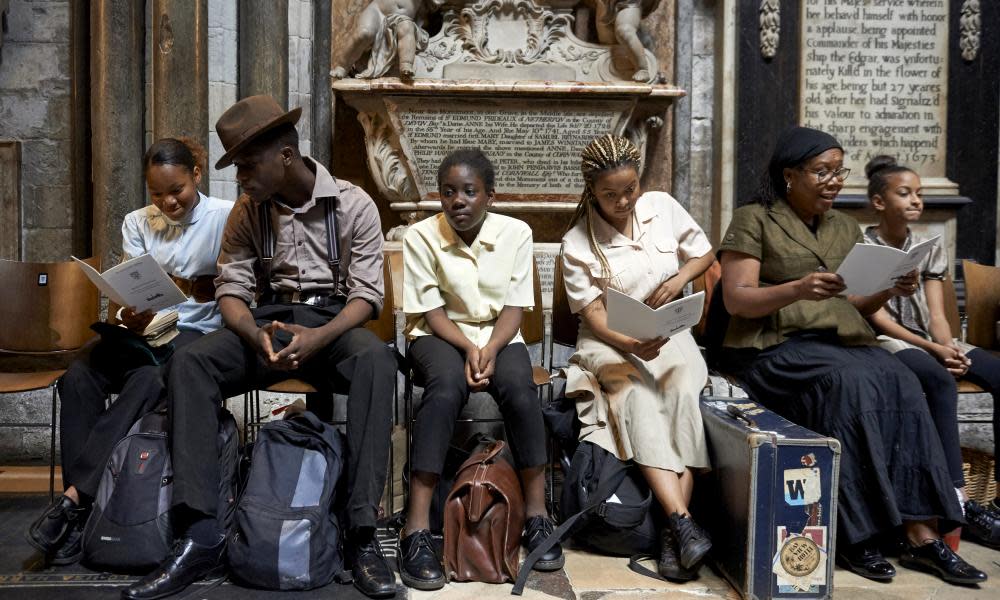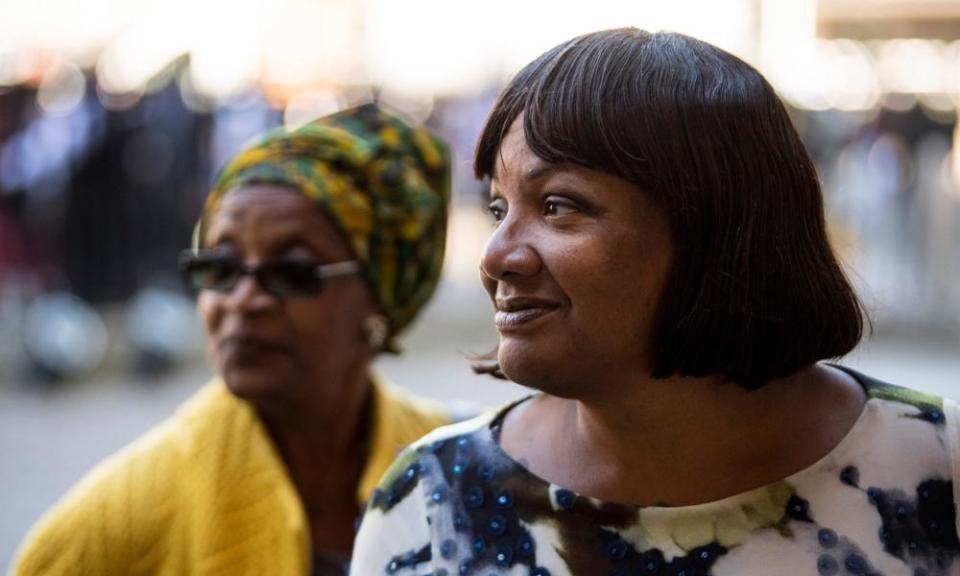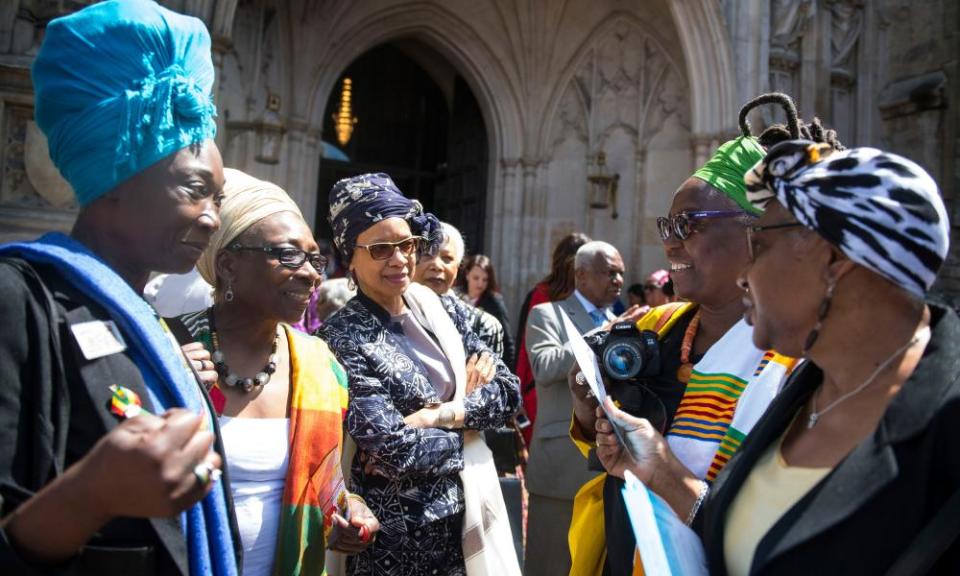Windrush service celebrates generation's contribution to Britain

Westminster Abbey filled with music, laughter and solemn reflection as 2,000 people gathered to celebrate the contribution of the Windrush generation and their descendants.
On Friday, 70 years after the MV Empire Windrush docked at Tilbury in Essex in 1948, carrying about 500 hopeful migrants, a service was held to recognise the contribution of the Windrush generation to British society – and acknowledge the difficulties they had overcome.
Steel drums rang out the hymn Amazing Grace as guests entered, and a joyous rendition of Jesus, hold my hand by the Windrush 70th Anniversary Choir, had the congregation clapping along.
Many Windrush settlers applied to job adverts with the hope of finding long-term employment in the UK, having gained a type of citizenship under the British Nationality Act of 1948, but faced racism, discrimination and distrust.
The congregation heard original testimonies. Some made them laugh (“Why is it so cold? Why is everything in tins?”), others were met in solemn silence as they heard of people being told “Blackies should be seen and not heard” and of the hurt caused by signs saying: “No dogs, no Irish, no blacks.” Under her breath, a guest said: “I remember that. It was awful.”

But, with both the prime minister, Theresa May, and the home secretary, Sajid Javid, in attendance, there was a palpable recognition among those who gathered that the Windrush generation had suffered further recently.
The government announced earlier this month that it would celebrate Windrush Day every 22 June. This announcement came weeks after the Guardian reported that members of the Windrush generation and their children had been wrongly detained and deported and others denied access to healthcare, work, housing benefits and pensions.
On Tuesday, Amelia Gentleman won the prestigious Paul Foot award for the Guardian’s investigative and campaigning journalism for her reporting on the Windrush scandal.
“It is alright for those of us that are here today, but there are people who went home to a funeral and were not let back into the UK,” said Gloria Whyte, 73, who came unaccompanied from Trinidad when she was 16. “It is an honour to be here, but they should be here with us. There is a sadness, too.”
Addressing the congregation, the Rev Canon Joel Edwards referenced the scandal. “In recent months, the word Windrush has evoked a great deal of emotion and even anger across our political landscape,” he said. “In this service of thanksgiving, Windrush means more than migration.”

He described how Windrush had “gifted” Britain with leaders in politics, trade unions, business, sport and culture – joking that Caribbean influence could also be seen in the national cuisine, including “rice and peas, jerk chicken and Levi Roots sauce in our supermarkets”.
“Settling down hasn’t been plain sailing,” he said. “The children of Windrush have experienced over-representation in Britain’s prisons and mental health institutions. Knife crimes. Underachievement in education and the job market.
“Settlement has meant racism, sometimes too much policing and not enough protection. And Stephen Lawrence.” But he added: “Windrush resilience arises, supremely.”
The Rev Dr John Hall, the dean of Westminster, conducted the service in a robe decorated with images of aspects of black history in Britain since the arrival of Windrush. “We come to give thanks for the lives, commitment, and courage of those original settlers, to celebrate the rich diversity of multicultural Britain in our own day,” he said.
Among the guests were Doreen Lawrence, mother of the murdered black teenager Stephen, and Floella Benjamin, the TV personality who became a peer, who was applauded as she jigged briefly in the nave. The Londonmayor, Sadiq Khan, attended the service, along with the shadow home secretary, Diane Abbott.
Speaking after the ceremony, Dionne Gravesande, whose grandmother and parents came to Britain after the war from Guyana, said it was a day of mixed emotions.
“We haven’t overcome racism. Too often our identity is still framed by the colour of our skin, by our differences rather than that which holds us together,” she said. “But I think today is a collective recognition that although we have a broken history, or future doesn’t have to be so broken.”

 Yahoo News
Yahoo News 
